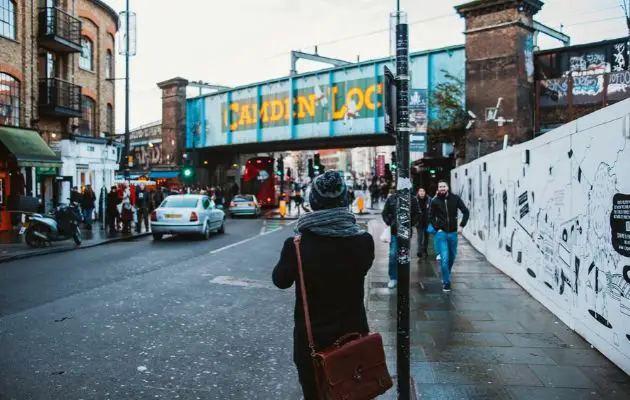Tips for International Students, including the fun!


The United Kingdom attracts students from throughout the world and is renowned for its educational establishments and facilities, nightlife, art and culture just to name a few things. Between 2015 – 2016 the UK attracted 127,440 international students from within the EU and 310,575 from outside the EU (Institutions.ukcisa.org.uk, 2017).
Moving to a new country can be extremely challenging, different cultures, languages, and taste buds can all add up to an overwhelming experience for students. Despite its faltering economy, unpredictable weather, and the sky-high living costs the UK still attracts students from throughout the globe with its world-class institutions and facilities. This article looks to give students a ‘heads up' and help them ease into living in the UK.
Accommodation is expensive.
Despite falling on the global scale in terms of the Costliest Countries to live in, largely due to the depreciation of the pound, the UK is still an expensive place to live and study. London was recently ranked the 30th most expensive city in the world to live. Cost of living will, of course, vary depending on location in the UK and lifestyle. Renting a furnished two-bedroom apartment in the London averages about GBP 1,900 per month, with large price variations between different areas (Expat Arrivals, 2017). Rent in other big cities such as Manchester, Birmingham or Leeds will be a little more reasonable.
Students can look to save money by renting a room within a larger house, it is possible to rent a room in London for around GBP 400 per month (Expat Arrivals, 2017). House-shares are also a great way to meet other young people. Students can use websites such as mystudenthalls.com to find these types of accommodations.
Use Public Transport.
Aside from the cost of accommodation, moving around London can be expensive. As a current student in central London, I have seen my fellow student spend up to 1000 pounds on their transportation a large chunk of this budget is allocated for UBER or other similar services, in contrast, my average monthly expense is around 90- 100 pounds for commuting.
The United Kingdom is served by a national network of trains and long-distance buses, but with the growth of low-cost airlines in Europe it is also possible to fly between cities at very reasonable prices. Train travel in the UK can be expensive. On average, a return train fare between London and Manchester costs around GBP 70. Students can save money by booking the journey well in advance or by investing in a railcard (Expat Arrivals, 2017). Apply for Oyster or railcard here.
Eating in.
The latest Menurama Survey from Horizons revealed that the prices on pub and restaurant menus have gone up 6% in the last six months.

The average price of the average starter (£5.59), average main course (£10.62) and average dessert (£4.20), now mean that a meal for two including a (fairly) average bottle of wine (say, £15) will cost, on average, £55.82 (Naylor, 2013). International students can look to save money by eating at home, the monthly minimum recommended amount of money spent for food per person is only 175.69 (Western diet) and 137.67 (Asian diet), potentially huge savings for students.
Accessing Libraries.
As students, libraries are a necessity, The Society of College, National and University Libraries (SCONUL) represents all the university libraries in the UK and Ireland, irrespective of the mission group, this includes national libraries and many of the UK’s colleges of higher education. By joining SCONUL students are able to access 175 libraries throughout the UK and Ireland (Sconul.ac.uk, 2017).
More information about SCONUL can be accessed at their website
We will be writing a blog on the top libraries in the UK over the coming weeks.
Nightlife.
And now the fun part, the weather in the UK is nothing to shout about, but the UK is blessed with a host of nightspots and renowned for its nightlife. Depending on where you are located in the UK here is a list of the 10 best nightspots in the UK (in no particular order) as compiled by The Guardian.

- Sub Club Glasgow
If you happen to be located in Glasgow you can check out Sub Club, which has been the centre of dance music in Glasgow since the birth of house music in the UK. Still, as vibrant and lively as the first day it opened, Sub Club generally opens from 11 pm to 3 am.
- Fabric London
First opening in 1999, Fabric now occupies a 45,000 square foot space in Central London. The club is split into 3 rooms each providing the visitor with a unique experience. One notable feature of the club is the “bodysonic” dancefloor “sections of the floors are attached to 450 bass transducers which emit bass frequencies, allowing clubbers to feel the music through the low-end frequencies transmitted into their skeletons via their feet.” (Fabric London, 2017)
- The Rainbow Venues
If you happen to be in one of the many Universities in Birmingham, you are in luck, The Rainbow Venue has been at the forefront of the clubbing scene in ‘Brum’ and is a large venue, with multiple rooms all providing different ‘vibes’. ‘The cellar’ for example is located downstairs and is small, has a low ceiling, great lighting and sound. In contrast to that, you have ‘The Warehouse’, a large room with no frills.
- Leeds West Indian Center
By day this venue is a community centre, but by night it transforms into one of the most amazing venues, providing party-goers with an authentic dancehall experience. Split into two parts the main room and the second room, this venue will truly give international students a night to remember.
- Soup Kitchen Manchester
Situated in a former boxing gym in the Northern Quarter of Manchester is Soup Kitchen. The venue has two floors, the upstairs has a bar/ canteen with a resident DJ that spins good music while you enjoy your food, and downstairs is the basement club and gig venue. The Soup Kitchen has an intimate vibe with the focus being the music. The crowd that frequents is a mix of seasoned local and young bright students.
- The Night Kitchen, Sheffield
Located in an old Sheffield cutlery is the Night Kitchen, which utilizes the location to create a dark warehouse-party atmosphere. If it was not for the lines outside, it is safe to assume that you would not give the warehouse front a second glance. If you’re looking for a space to simply enjoy good tunes without all the stage and light shows this is a great venue to get lost in the music (The Guardian, 2015).
- Haus at Camp and Furnace, Liverpool
Similar to The Night Kitchen, Haus in Liverpool tries to replicate the feel of a warehouse- party. The place is dark, visual displays take the place of traditional lighting. What makes this venue standout is that it allows promoters to get creative and let their imagination run wild, as they treat the venue as a blank canvas.
- Full Moon Pub and Attic Bar Bristol
Located in the ‘artsy’ part of town (Stokes Croft) are two buildings separated by a Shisha Bar Courtyard; the Full Moon Pub and Attic Bar brings a festival vibe to every weekend. The music can be described as eclectic and the owners have more roots-orientated music policy. Good news for students, is that there is usually a very low (or free).
- Concorde 2 Brighton
The Concorde 2 in Brighton feels more like a concert venue than a nightclub, but it still provides the raw intensity that clubbers look for on a Friday night. This venue has been around since the 90s and has it all, great location, great stage and amazing sound system.
- Dalston Superstore, London
The Dalston Superstore provides everything anyone would need for an amazing night out under one roof. The ground floor has a Brooklyn-style theme, with great cocktails and amazing DJ from across London. There is an art exhibition held at Dalston on a regular and the basement is where people go to let their hair down and have a good time.
For those lucky enough to be situated in the cities capital, we will be compiling a list of the capitals most student-friendly bars in the next few weeks.
As a current international student in the UK, I hope that readers will find this blog post helpful, if you need assistance in applying for a student visa or related services, please contact us at…

References:
fabric london. (2017). About fabric. [online] Available at: https://www.fabriclondon.com/club/about [Accessed 28 Jul. 2017].
Sconul.ac.uk. (2017). About Sconul | SCONUL. [online] Available at: https://www.sconul.ac.uk/page/about-sconul [Accessed 25 Jul. 2017].
Coldwell, W. (2015). 10 of the best UK clubs – chosen by the experts. [online] the Guardian. Available at: https://www.theguardian.com/travel/2015/feb/19/top-10-uk-clubs-chosen-by-experts [Accessed 28 Jul. 2017].
Expat Arrivals. (2017). Cost of living in the United Kingdom| Expat Arrivals. [online] Available at: http://www.expatarrivals.com/the-united-kingdom/cost-of-living-in-the-united-kingdom [Accessed 25 Jul. 2017].
Naylor, T. (2013). Restaurant prices are on the rise – so where can you still eat well for less?. [online] the Guardian. Available at: https://www.theguardian.com/lifeandstyle/wordofmouth/2013/apr/17/restaurant-prices-rise-eat-well-less [Accessed 25 Jul. 2017].
Institutions.ukcisa.org.uk. (2016). UKCISA – International students in UK HE – International student statistics: UK higher education. [online] Available at: https://institutions.ukcisa.org.uk/Info-for-universities-colleges–schools/Policy-research–statistics/Research–statistics/International-students-in-UK-HE/ [Accessed 25 Jul. 2017].
- Tips for International Students, including the fun! - 20 July 2018
- Heads Up International Students! Find Out The Top UK Culinary Schools - 18 July 2017
- You’re a Skilled Chef (or Aspiring to be)? The UK Needs You! - 17 August 2016









